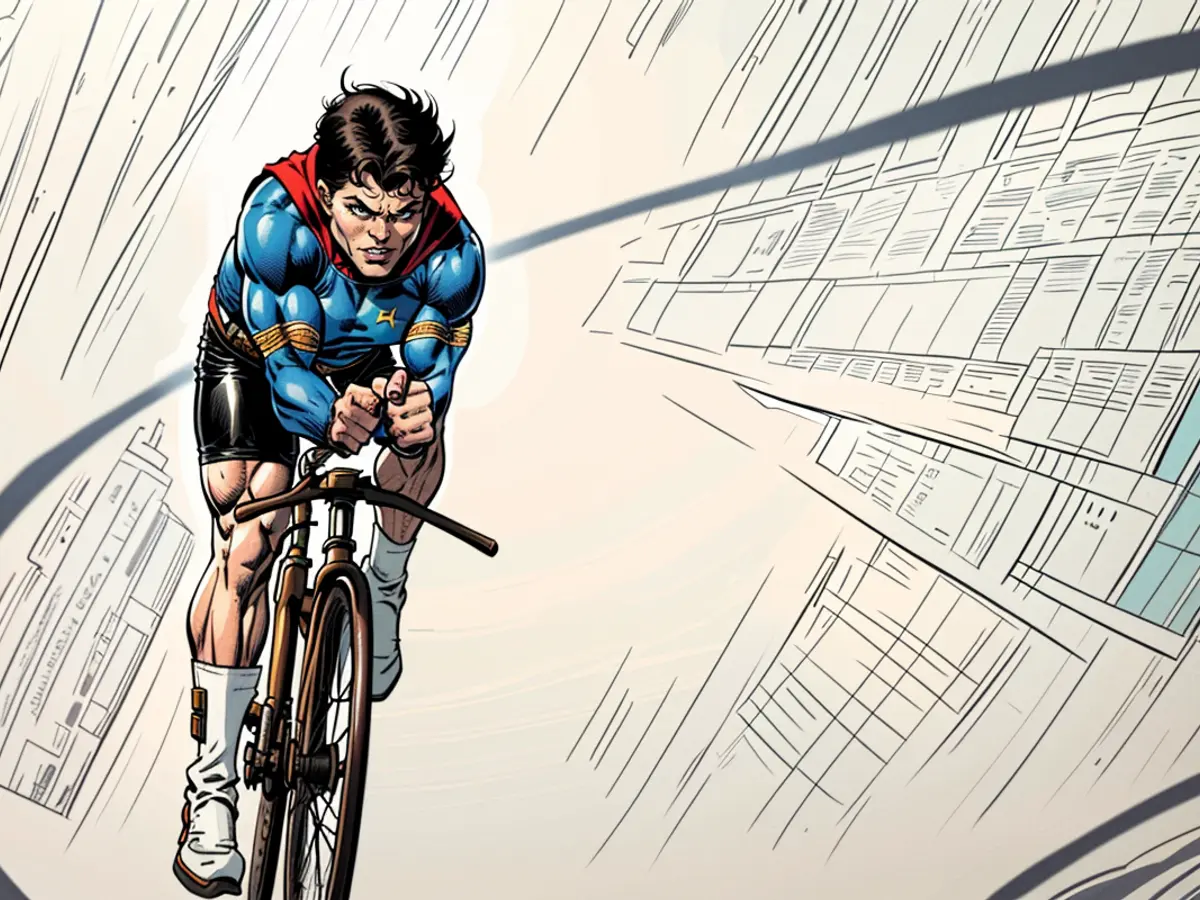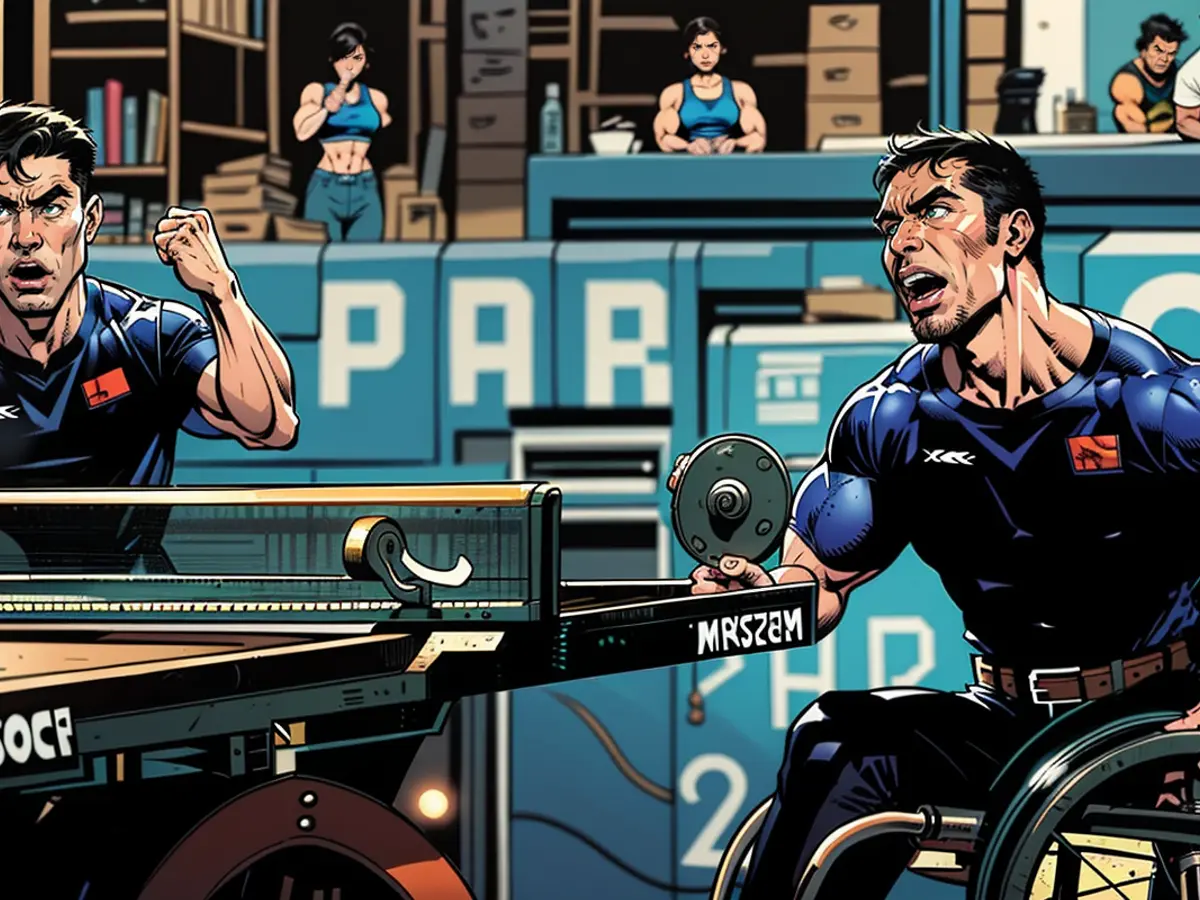Germany's duo Baus and Schmidberger secures another second-place finish for the nation.
German table tennis duo Baus/Schmidberger falls short in gold challenge against robust Chinese opponents. After placing fourth initially in the competition, cycling sensation Maike Hausberger surpasses expectations and realizes a significant aspiration.
Baus and Schmidberger battled and never surrendered but ultimately failed to claim gold. The Borussia Düsseldorf-based European champions in wheelchair table tennis secured the silver medal in the Paralympics' doubles event in Paris. The German pair, featuring Valentin Baus and Thomas Schmidberger, lost to the formidable Chinese team comprising Cao Ningning and top-notch player Feng Panfeng 0:3 (9:11, 5:11, 5:11) in the MD8 class final. As a result, Baus and Schmidberger clinched the second silver medal for the German Disabled Sports Association (DBS) at the Summer Games.
The day before, Stephanie Grebe and Juliane Wolf also clinched silver in table tennis's WD14 doubles class, succumbing to a Chinese pair. To date, all three table tennis gold medals from Paris have been captured by China.
Baus and Schmidberger benefited from vocal support from German fans at the Arena Sud 4. However, their opening act against Cao and Feng, who claimed their eighth Paralympic medal, was unsuccessful. National coach Volker Ziegler's team struggled to find their strong game in the second set, and the Germans suffered unfortunate luck when a Chinese ball landed on the table edge and deflected away.
Baus and Schmidberger looked for a comeback in the quarterfinals, where they were trailing 2-0 against a Chinese duo. The Germans managed to turn the tables around then, but in the final, they fell short.
For Baus and Schmidberger, this was their most significant accomplishment as a doubles pair. They also possess promising prospects in the singles. As the gold medalist from Tokyo and a world and European champion, Baus, who affected by osteogenesis imperfecta uses a wheelchair, is considered one of the leading contenders in the MS5 class. Schmidberger, who is also a world champion and finished second in Rio and Tokyo, is also a strong medal hopeful.
"It's amazing!"
In the meantime, cyclist Maike Hausberger accomplished her ambition of securing a medal. The 29-year-old placed third in the 500m time trial of the C1 to C3 classes and earned a bronze medal with a personal best time of 38.358 seconds. Two days ago, she finished fourth in the individual pursuit event at the Velodrome, just as she did in the long jump event in Rio's Paralympics eight years prior. "I'm incredibly overwhelmed, it's amazing!" said Hausberger. "Obtaining the first medal, regardless of the color, made me incredibly proud." She wanted to break the "curse of fourth places" and had been visualizing the race between qualification and final in her mind. Eventually, it panned out as she had planned.
"I had a sort of curse of fourth places at the Paralympics. I kept replaying the race between the qualification and final in my mind and thought about how it could unfold so that I could perform at my best. They say that what you imagine happens. So, I tried to approach it that way in the last hours and days, and it worked out."
More medal possibilities on the road
Three years ago in Tokyo, she did not qualify for the Paralympics as a track and field athlete and switched to cycling as a result. This shift proved beneficial. Thus far, the Cottbus native, who rides with spastic hemiparesis, has amassed six world championship titles on both the road and track, as well as six additional medals. She set a new personal best in the morning qualification and then further improved it in the final.
Only Australians Amanda Reid (36,676) and Chinese Qian Wangwei (37,616) were faster. On Thursday, Hausberger demonstrated her impressive form in the individual pursuit over 3000m, setting a world record, which was subsequently broken twice. Ultimately, she narrowly missed the podium in the small final. More prospects lie ahead on the road, where she excels.
Pierre Senska did not progress to the final in the fast wooden track of Saint-Quentin-en-Yvelines. The Berliner finished tenth in the men's C1 class up to 3 over 1000m in 1:11.449 seconds. Only the top six athletes in each class were eligible to compete for medals.
Baus and Schmidberger added another silver medal to Germany's tally in the Paralympics, finishing runners-up in the wheelchair table tennis doubles event. Their impressive performance at the Paralympics in Paris showcased their skills and dedication, as they look to continue their success in future Paralympic Games.










